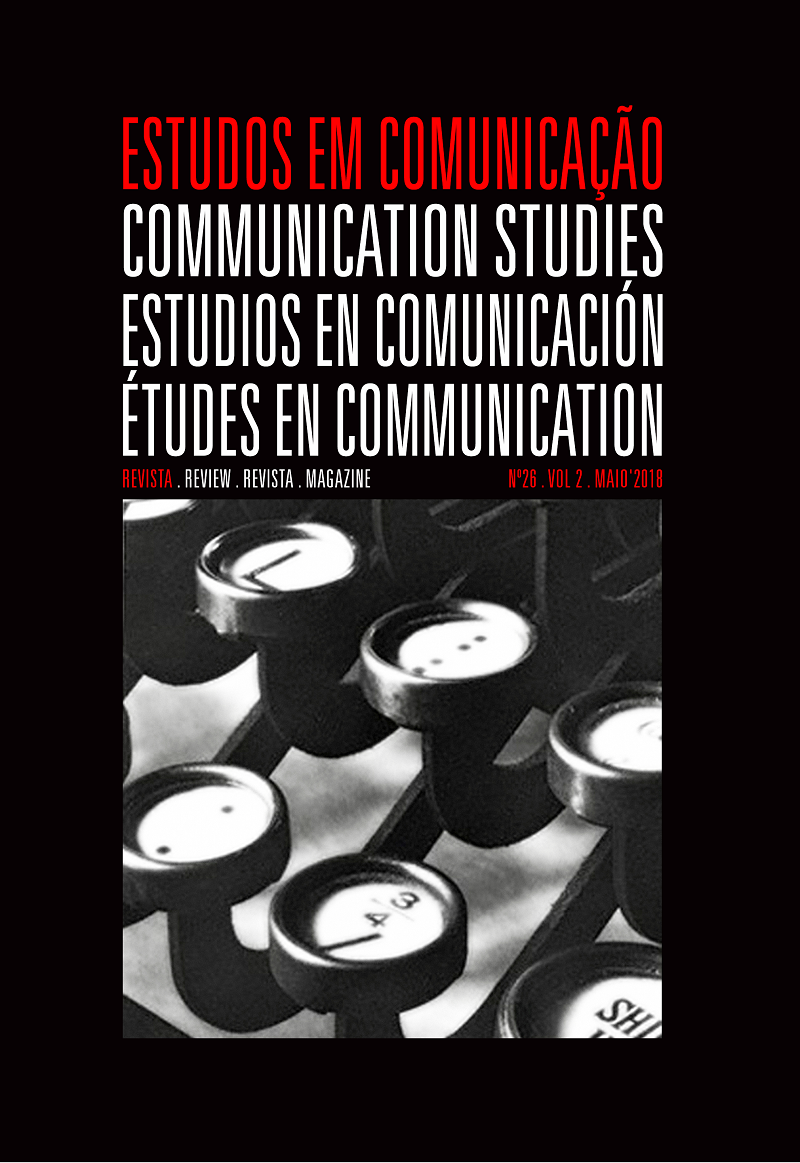Os especialistas e o público
Abstract
The international financial crisis, originated in the United States in 2007, was not anticipated by most scholars and policymakers. The Brexit and the vic- tory of Donald Trump in the US elections also surprised the majority of opinion makers. These events raise important issues, namely the actual forecasting capacity of experts. According to some authors, the spectre of populism is haunting the Western world. On the other hand, elitism, a kind of populism turned upside down, seems to gain a new life. Somehow, faith in humankind is scarce these days. There is a new coming of the views of the masses’ ignorance, irresponsibility and irrationality. Furthermore, today the masses have a wide-ranging participation in pu- blic discussion through social media, without medi- ation. In this article, standing on the views of several authors on the relation between experts and the public, we explore the following questions: (1) In a democratic society, what is the contribution of experts to improve the methods and the setting of public discussion and, on the other hand, to the poli- tical decision-making processes? (2) in which conditions can experts’ forecasts be more accurate than the public emotions and intuitions?
References
Arrow, K. (1992). I know a Hawk from a Hardsaw”. In M. Szenberg (ed.), Eminent economists: their lifes and philosofies (pp. 42-50). Cambridge and New York: Cambridge University Press.
Berlin, I. (1999). A apoteose da vontade romântica: uma antologia de ensaios (Trad. Curvelo, Trad.). Lisboa: Editorial Bizâncio.
Brennan, J. (2016). Against democracy. Princeton and Oxford: Princeton University Press. Dewey, J. (1954). The public and its problems. Athens: Swallow. (Obra original publicada em 1927).
Gasset, J. O. (1997). La rebelión de las masas. Barcelona: Editorial Optima. (Obra original publicada em 1930).
Habermas (2001). Moral consciousness and communicative action. Cambridge, MA: MIT Press. Hayek, P. A. (1967). Studies in philosophy, politics and economics. Chicago: The University of Chicago Press.
Kahneman, D. (2012). Pensar, depressa e devagar (Trad. P. Vidal). Lisboa: Círculo de Leitores.
Kuran, T. & Sunstein, C. R. (1999). Availability cascades and risk regulation. Stanford Law Review, 51, 683-768.
Laski, H. J. (1931). The limitations of the expert. Fabian Tract, 233, 3-14. Lippmann, W. (1993). The phantom public. New York: Macmillan. (Obra original publicada em 1925).
Lippmann, W. (1998). Public opinion (2.a ed.). New Brunswick (U.S.A.) and London: Transaction Publishers. (Obra original publicada em 1922).
Nichols, T. (2017). The death of expertise: the campaign against established knowledge and why it matters. New York: Oxford University Press.
Noelle-Neumann, E. (1995). La espiral del silencio. Opinión pública: nuestra piel social. Barce- lona: Paidós.
Scheufele, D. A. & Tewksbury, D. (2007). Framing, agenda-setting, and priming: the evolution of three media effects models. Journal of Communication, 57, 9-20.
Schumpeter, J. A. (2000). Capitalism, socialism & democracy. London: Routledge Press. (Obra original publicada em 1943).
Shanteau, J. (1992). Competence in experts: The role of task characteristics. Organizational Behavior and Human Decisions Processes, 53, 252-266.
Slovic, P. (1999). Trust, Emotion, Sex, Politics, and Science: Surveying the Risk-Assessment Battlefield. Risk Analysis, 19(4), 689-701.
Taleb, N. N. (2013). O cisne negro: o impacto do altamente improvável (Trad. S. Oliveira). Lisboa: D. Quixote. (Obra original publicada em 2007).
Tetlock, P. (2005). Expert political judgment: how Good is it? How can we know?. New Jersey: Princeton University Press.
Tocqueville, A. de (2001). Da democracia na América (Trad. C. C. M. de Oliveira). S. João do Estoril: Principia. (Obra original publica em 1835).
Downloads
Published
Issue
Section
License
Estudos em Comunicação/Communication Studies is an Open Access journal. All its content is freely available without charge to the user or his institution. Users are allowed to read, download, copy, distribute, print, search, or link to the full texts of the articles in this journal without asking prior permission from the publisher or the author. Estudos em Comunicação, by Labcom, is licensed under a Creative Commons Atribuição-NãoComercial-SemDerivações 3.0 Unported License. By submitting your work to Estudos em Comunicação/Communication studies you confirm you are the author and own the copyright, that the content is original and previously unpublished, and that you agree to the licensing terms.


